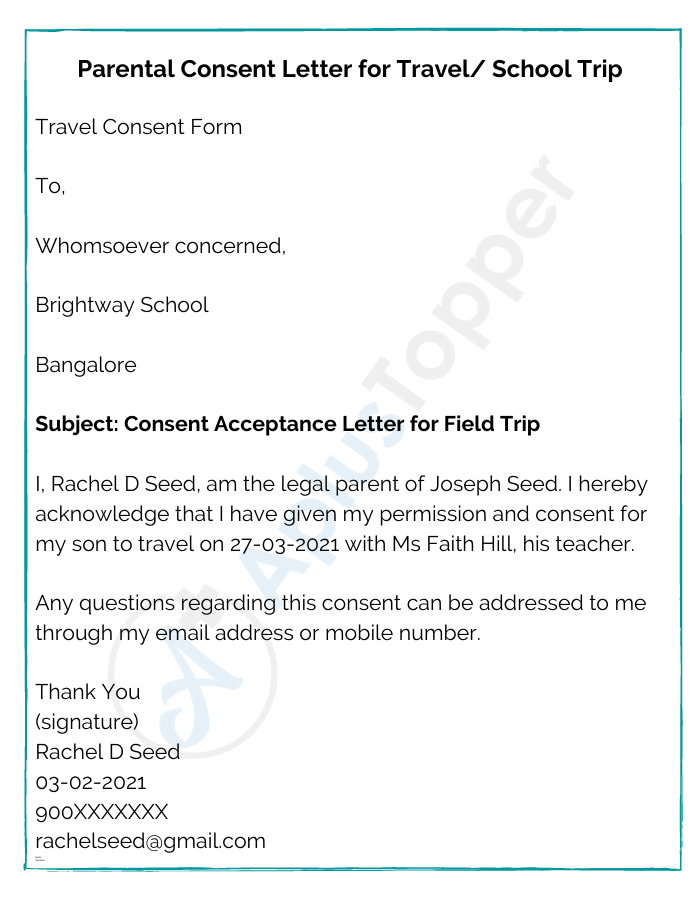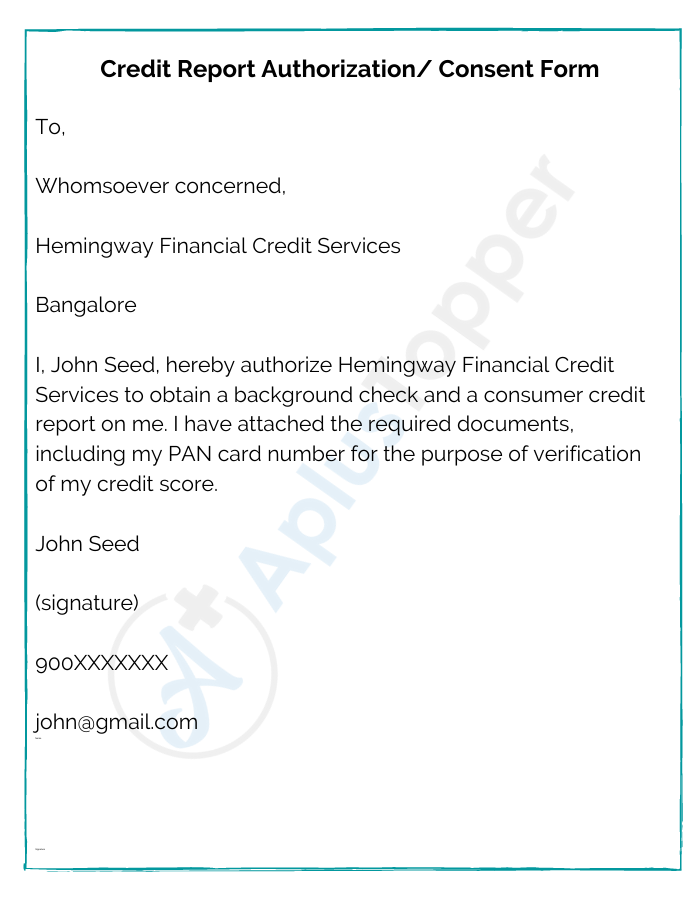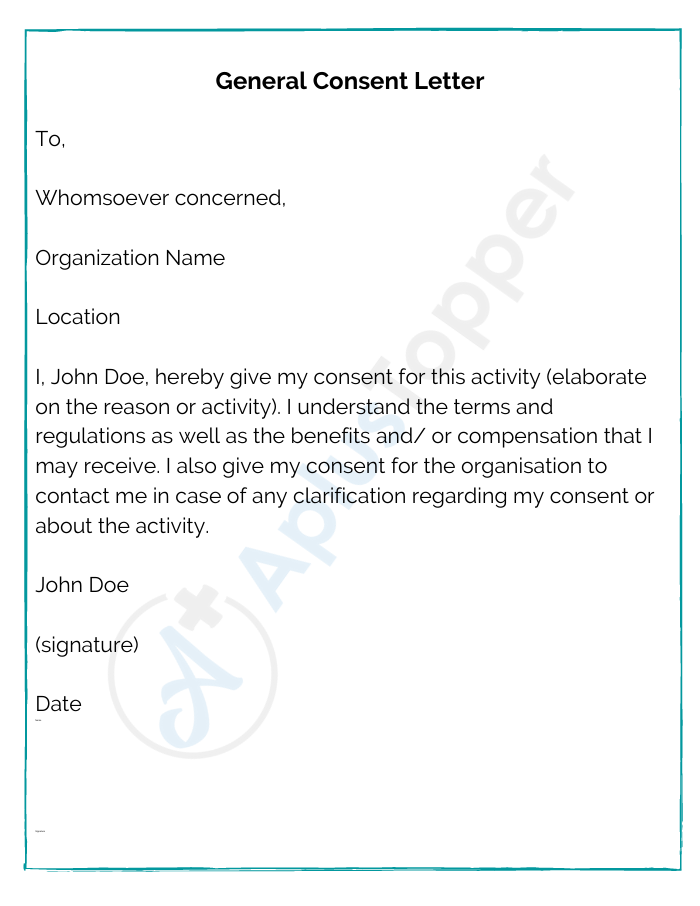Consent Letter: A consent letter is a written document seeking permission from one party to another. From a business perspective, a consent letter is important for certain tasks as they are legally required to obtain permission to initiate an action. Usually, consent can be obtained in one of three ways – Explicit Consent, Implicit Consent, Opt-out Consent.
Explicit consent is also called direct consent. The respondent is presented with an unambiguous option or a statement where they choose to agree or disagree with a request (usually disclosing personal information). Implicit consent is also called indirect consent as it is drawn from the action of the respondents. An example of an implicit content is the references on a resume. Opt-out consent is another method of obtaining consent where organizations provide the option to decline consent. Failure from the respondent’s part to declining the consent implies that they have already given permission.
Get Other Types of Letter Writing like Formal, Informal and Different Types of Letter Writing Samples.
Guidelines for Writing a Consent Letter
Following are a few guidelines for writing an effective consent letter:
- Ensure that the formal letter/ email has a clear heading regarding the consent
- Explain the requirements (if any) from the respondents
- Mention the duration of the program or participation
- Ensure that relevant names and other details such as addresses and contact information of respective parties are included in the letter
- Explain the rules of engagement (or contract) of the project. Any benefits and/or compensation must be clearly explained to the participants
- Signature is the most important part of the consent letter. This is where the respondent accepts the consent.
Types of Consent Letters/ Forms
Usually, there are many types of consent letters, but a majority of those letters are based on these four:
- Parent consent letter form
- Consent form for research
- Medical consent form
- Consent form for education
Format for Consent Letter
Following is a typical format of consent letters. The letter of consent format may change depending on the scenario, however, this general format is applicable to all, provided, the necessary changes are made.
Consent Letter/ Letter of Consent Sample To (Recipient Name/ Designation) Organisation name Place Subject: Consent to ____ (state purpose for consent) Dear (Sir/ Madam) (Explain the reason for providing/ requesting consent. Mention relevant details (such as dates, names, activities). End the letter by signing off and starting to accept the terms and conditions of the consent. Signature Name Email ID/ Mobile number |
Consent Letter Samples
The following are some of the most common uses of consent letter formats.
Sample 1 – Parental Consent Letter for Travel/ School Trip

Sample 2 – Credit Report Authorization Form

Sample 3 – Consent Letter From Parents to School
This type of consent form is used across a wide range of scenarios – ranging from professional to personal requirements. Get to know How To Write A Consent Letter From Parents To School.

FAQ’s on Consent Letter
Question 1.
What is a consent letter?
Answer:
A consent letter is a written document seeking legal permission from one party to another to perform an activity or collect information.
Question 2.
What are the ways consent can be obtained?
Answer:
Consent can be obtained through either explicit consent, implicit consent or opt-out consent.
Question 3.
What is explicit consent?
Answer:
Explicit consent is when the respondent is presented with an unambiguous option to choose to either agree or disagree with an activity or collection of information.
Question 4.
What is implicit consent?
Answer:
Implicit consent is drawn from the action of the respondents – such as the references present on a resume, CV or any application form.
Question 5.
What is an opt-out consent?
Answer:
In this type of consent, organizations provide the opportunity to decline consent. Failure from the respondent’s part to declining the consent implies that they have already given permission for the collection of information or sending ads.
